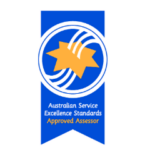Our Services
National Disability Insurance Scheme (NDIS) Auditing
For NDIS providers seeking or maintaining registration with the NDIS Commission. These audits ensure compliance with the NDIS Practice Standards and Quality and supports high-quality service delivery.
Australian Community Industry Standard (ACIS) Auditing
For community service providers wanting to certify their organisation to delivery services to clients outside of the aged care or NDIS framework. This audit ensures compliance with ACIS standards, promoting high-quality service delivery for community-based support.
In NSW, providers delivering services for icare-funded clients must be ACIS certified.
In TAS, providers delivering services for MAIB-funded clients must be ACIS certified.
International Standards Organisation (ISO) Auditing
For organisations seeking to improve quality management and obtain ISO certification. This audit demonstrates commitment to quality, efficiency, and continuous improvement
Australian Service Excellence Standards (ASES) Assessments
For community service organisations seeking recognition for service quality and continuous improvement. These assessments help organisations build strong governance, operational efficiency, and service quality.
Human Services Quality Framework Auditing
For organisations funded to deliver human services under service agreements, or other specified arrangements, with specified current or former Queensland Government departments.
For organisations funded to deliver child protection placement services in-scope of licensing under an Individualised Placement and Support Agreement.
For organisations funded by Queensland Health that have been advised by QH that they can use HSQF to meet the quality requirements.
These audits ensure initial and ongoing compliance with the HSQF Framework.








